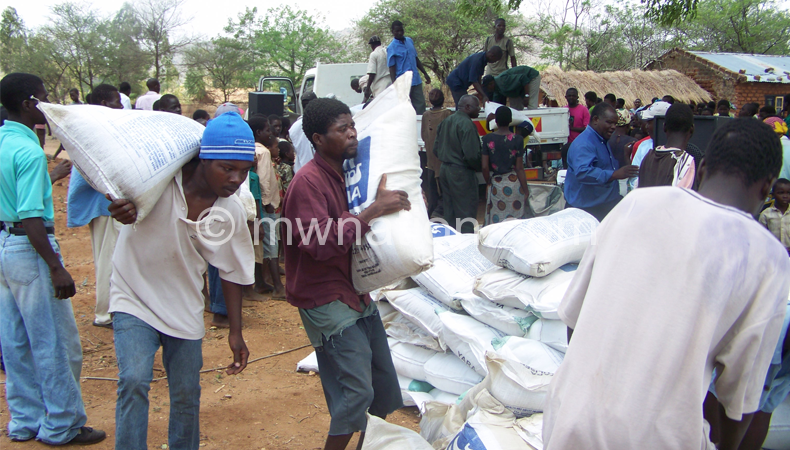SFFRFM to evaluate Fisp bids

Government has appointed the Smallholder Farmers Fertiliser Revolving Fund of Malawi (SFFRFM) as evaluator of bids for fertiliser supplied under the Farm Input Subsidy Programme (Fisp).
One of the major fertiliser suppliers has since questioned how SFFRFM—an interested party that also supplies fertiliser under the same programme—could objectively carry out the responsibility.
SFFRFM chief executive officer Andrew Kalinde confirmed on Friday that his firm will handle all the procurement of 150 000 metric tonnes of fertiliser, warehousing, rehandling and loading to the company’s and Admarc’s distribution points.
“We are analysing bids from the companies that tendered. SFFRFM will supply 30 000 metric tonnes that it has in stock,” he said.
Kalinde said despite SFFRFM acting as a buyer, evaluator and seller at the same time, the company will assess the bids strictly under the Public Procurement Act, adding that there will be professionalism and transparency.
He said since his firm has about 30 000 metric tonnes in stock, the company will only be looking for 120 000 metric tonnes of fertiliser to satisfy the government requirement of 150 000 metric tonnes.
“After assessment we know that companies in the country already have 137 000 tonnes in stock, so we will only be ordering the remaining from outside the country,” he said.
Kalinde said the distribution of fertiliser to the depots will start immediately after the suppliers have been identified.
But a long time Fisp supplier—who asked not to be named fearing he could be blacklisted—said it does not make sense for a competitor to evaluate others.
“There is serious conflict of interest here,” said the supplier.
Another major supplier, Abraham Simama, who owns Simama General Dealers, which has submitted its bid, said he has no knowledge of the new governing evaluation arrangement.
“I am a man of God. I cannot say I am aware of this. All I know is that I presented a tender for 150 000 metric tonnes, which government had asked for, but I have no idea of the other arrangement,” he said.
Until this year, government has been managing the procurement of fertiliser under Fisp through its Internal Procurement Committee (IPC), with the Office of the Director of Public Procurement (ODPP) providing oversight and technical backstopping.
But critics said the ministry’s internal process was heavily politicised, with companies seen as not supporting the ruling party sidelined while those close to the govering elite dominated tender awards.
In a separate interview on Thursday, Ministry of Agriculture Principal Secretary Erica Maganga defended the decision to use SFFRFM for the management of the programme, saying the company is government-owned.
“It is not particularly outsourcing because the company is already owned by government,” she said.
SFFRFM is expected to announce the winners of the bids in September.
Maganga said she could only respond to why a company that is supplying fertiliser is also evaluating other companies’ bids after the Minister of Finance has made his budget statement in Parliament.
“Your questions might be answered by the Minister of Finance in the budget statement. Maybe after the presentation we can answer your questions,” she said.
Around 1.5 million poor farming households are expected to benefit from the programme this year, a figure that is unchanged from the previous season.
This number of beneficiaries has proved to be on paper only as the majority of the targets miss out.
A World Bank study released late last year, which assessed the system used in choosing Fisp beneficiaries, revealed that up to 57 percent of people who receive fertiliser coupons are not eligible to benefit because they are not poor, but connected to authorities.
This translates into around 855 000 of unintended beneficiaries out of 1.5 million.
More disturbing perhaps are research reports by Rodney Lunduka and others on Fisp that reveal widespread diversion largely at the hands of politicians and government officials.
This diversion of the inputs is one of the most crippling problems facing Fisp.
Diversion refers to both coupons and subsidised fertiliser that is taken by government officials and resold as commercial fertiliser, whereas leakage refers to coupons and subsidised fertiliser that is resold by recipient households on the secondary market, enters the system and ultimately ends up on farmers’ fields,” the report says. n






Reporter, which primary school you went to? Can you not do simple maths? If 120,000 are needed and 137,000 tons of fertilizer is already available in country, what are you going to buy from outside for? You and your editors should be fired. Idiots!!!!